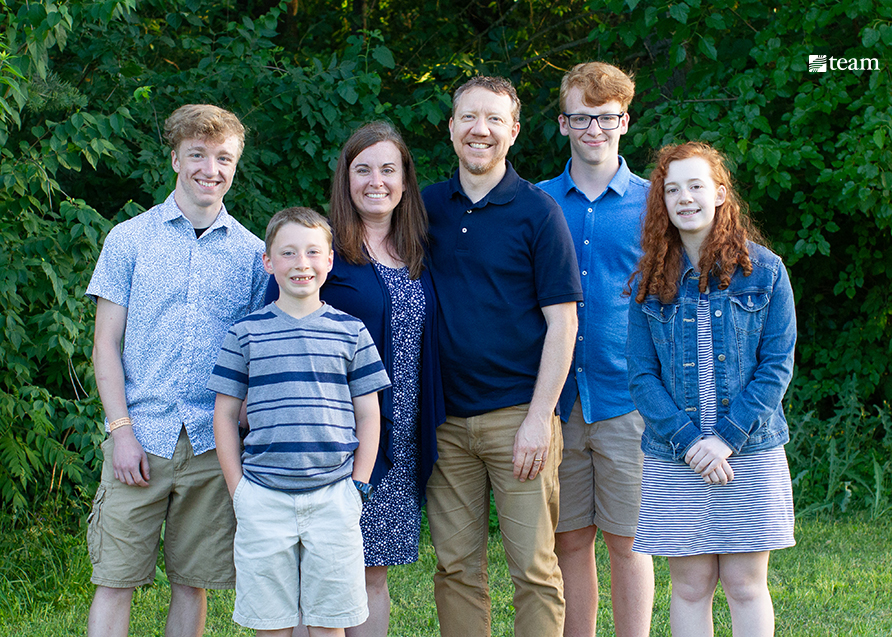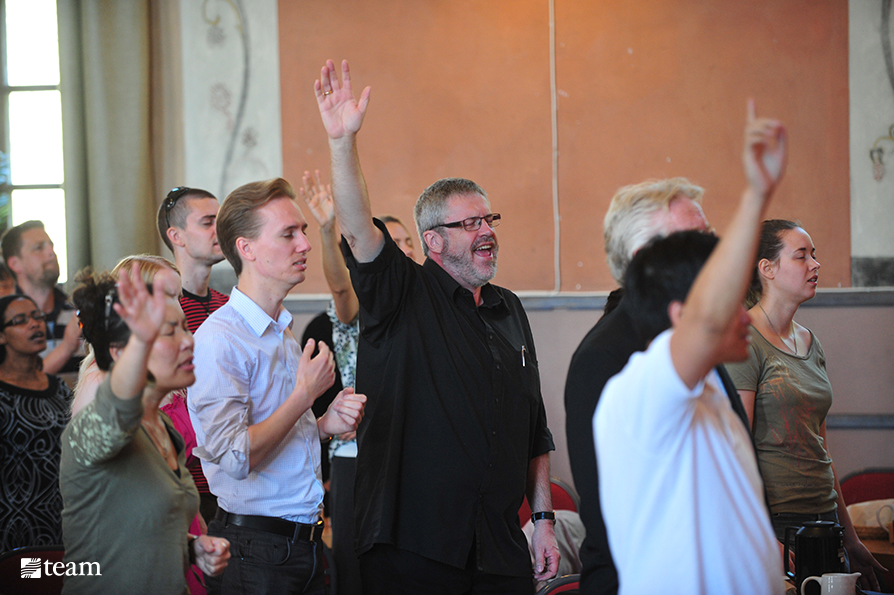
Becoming a Missionary
How Broken is Too Broken?
June 23, 2015
by Josh McQuaid

Prospective missionaries often get the impression that mission agencies are looking for perfect people. They can certainly be forgiven for this feeling. After all, we require forms to be completed, essays to be written, references to vouch for you and tests to be passed — all before we even let new members into the organization.
There are good reasons for all of these steps in the assessment process, and they ultimately lead to healthier mission agencies, healthier individuals serving overseas and healthier ministry itself.
Even so, I am yet to find a mission agency that isn’t deeply aware of the brokenness of its own members. Even those individuals who are most equipped to serve overseas are broken in numerous areas of their lives.
This side of the resurrection, to be human is to be broken. This is no less true for the believer than the unbeliever. And this is no less true for the missionary than the lay believer. Every believer is somewhere on the spectrum from broken to healthy. While we hope and pray that consistently walking with Christ in communion with his body will lead to increasing spiritual health in all areas of our lives, we also have to recognize that, in this life, we will never arrive at the end of that journey.
All of this raises questions like, “How broken is too broken?” and “How healed is healed enough?”
These and similar questions confront agencies as they try hard to welcome individuals who are likely to thrive in a cross-cultural ministry environment. They enter into a process of discernment in which great care, sensitivity and Spirit-fullness is needed. Far more art than science, this process balances risk and reward on a knife’s edge and is informed by three foundational assumptions.
Not all brokenness is the same.
I once heard the story of a man who was wracked with guilt over a sin he had committed 30 years prior. After years of trying to deal with the affects of his sin privately, he finally couldn’t take it anymore and confessed to those around him and others impacted by his actions years previously.
His sin? He had accidentally looked at a fellow student’s exam in Bible college and took his answer.
Had he done something wrong? Yes. Did he give this experience too strong a voice in his ongoing sense of identity? Yes. While all forms of sin have the same ability to alienate us from God, the brokenness they incur are usually not the same.
This point has application far beyond missionary assessment, but we can certainly start there. While we believe that forgiveness and redemption are freely given to all who are in Christ, we also know that forgiveness and redemption do not vanish the scars of sin, and that some scars are harder to deal with than others. Traumatic experiences of any kind, while difficult enough in the moment, have a way of staying with us for years to come. Years of addictive behavior leave residual effects that are difficult — sometimes impossible — to overcome. In short, brokenness comes in all shapes and sizes.
While none of it puts us beyond God’s reach, some of it makes a transition into cross-cultural ministry or leadership inadvisable for a time.
Healing is a journey, and journeys take time.
Paul’s journey from angry, bitter persecutor of the church to evangelist and missionary is a powerful one to consider when we think about the question, “How broken is too broken?” Looking at Paul’s story, we see that the Lord used many different things to bring about healing and restoration.
When I read this story, two elements strike me as being particularly instructive for us today. First, there was his relationship with Barnabas. It’s Barnabas who came to his defense before the apostles (Acts 9:26–30), brought him into ministry at Antioch (Acts 11:19–26) and instilled in Paul a commitment to the care of the poor and needy (Acts 4:33–37; 11:27–30; Gal. 2:10). Barnabas deserves far more credit in Paul’s transformation than we typically acknowledge!
If we overlook the role of Barnabas in Paul’s healing, we also tend to overlook how much time passed before Paul’s ministry really began. The cadence of Acts carries us along quickly, giving us the impression that Paul turned from being the church’s most violent persecutor to its most vehement supporter overnight. But Paul’s own account in Galatians gives the narrative a bit more texture.
What Acts compresses into a few quick verses, Galatians spreads over three years — or perhaps even 17! Either way, the stories in Acts and Galatians together indicate that God used both relationship and time to bring about Paul’s remarkable transformation.
All of which gives me confidence that God may call anyone into cross-cultural ministry. After all, if he could turn Paul into the greatest missionary we’ve ever seen, what could he do with you or me? Even so, we too often think God’s call will feel like Acts reads — compressed, quick and speedy. But, in his sovereignty and wisdom, God has built tremendous healing power into His body, which we access through healthy relationship with fellow believers.
These relationships take time, so God often calls us, like Paul, to wait, train and heal before launching into ministry.
Being called and being ready are two different things.
Growing up, I remember seeing a man transformed from the local town drunk into a mature, godly, vibrant believer who was sent out as our church’s first missionary.
Seeing this transformation firsthand was a powerful experience, and it has stayed with me to this day. Were we all called to love the people to whom he was sent? Absolutely. Were we all called to join him in prayer and faith for the work that was ahead? No question. Were we all called to go? No.
I love this story because it is such a sharp reminder of the complexity of the missionary call. This man’s past sins and failures in no way disqualified him from missionary service. He was still very rough around the edges, but God used relationship and time to grow him into maturity and call him into his service. And, when God called him into ministry, God also called our church into a certain kind of missional engagement, too. We weren’t all called to go, but we were all called to be involved in unique ways, all of which had an impact through his ministry.
In other words, there are countless ways you can be involved in missions, even if your preparation period is a long one! Pray for your church’s missionaries. Give to them. Send them notes of encouragement. Get discipled, and learn how to disciple in your local context. A call to wait until you’re ready is very far from a call to stay out of missions!
So, how broken is too broken? I still don’t have an easy answer to this question! But I am convinced that we all bear the scars of our failures in different ways, and that God will use time in deep relationship with his body to get us to places of maturity. And even while we wait, there is much that can be done right where you are.
If you still have questions about brokenness, we want to help! Talk with a missions coach to share your story and explore how God can use you for His glory. We’re excited to walk with you as you seek Him.

Related articles

